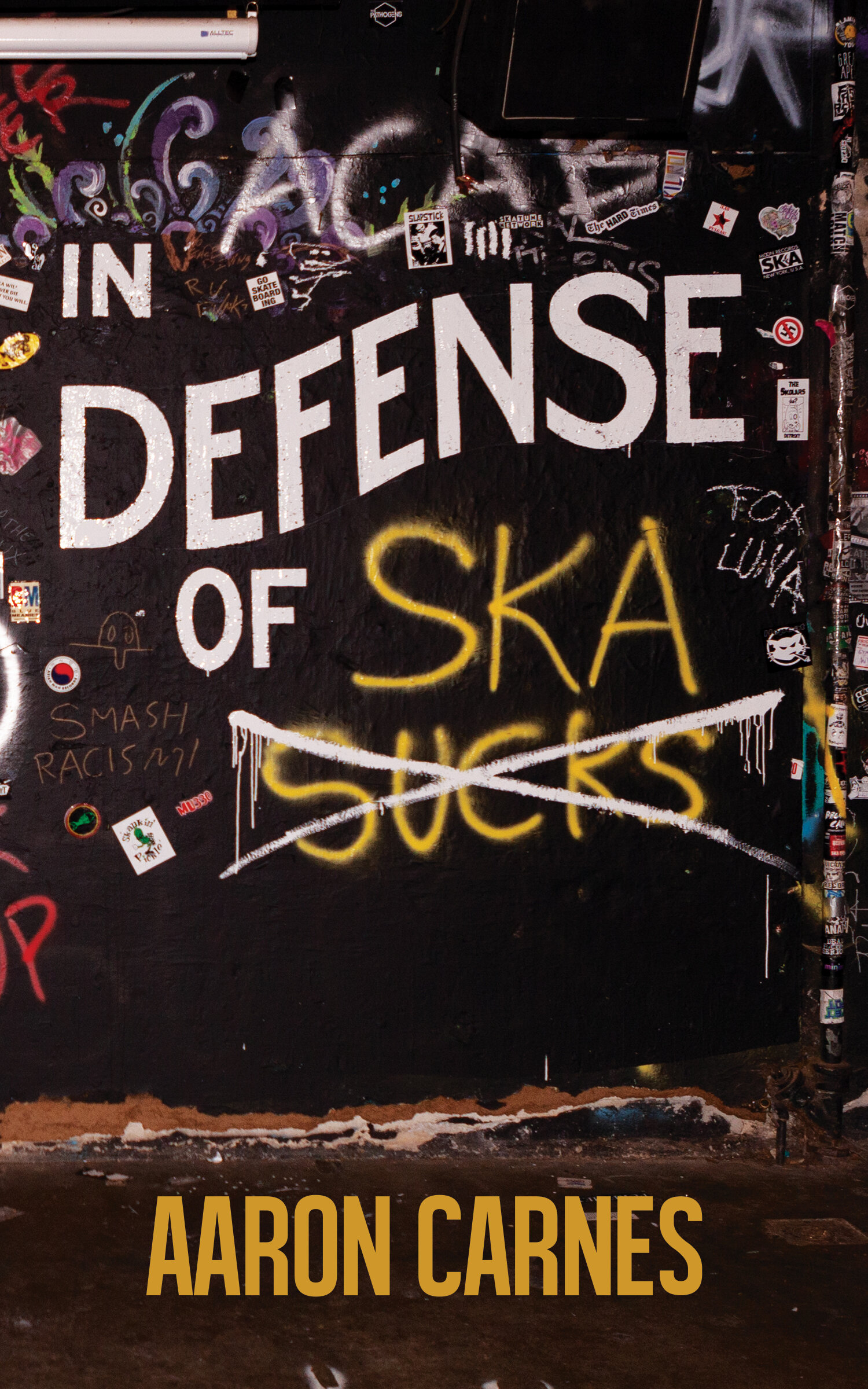Opening Statement
Every ska fan gets ridiculed by friends and family about their favorite music genre. From mozzarella stick memes to band geek stereotypes, they endure a lot as fans. No matter what’s going on with ska music, for some reason, it’s cool to hate, or distance yourself from it. If you were in a ska band back in the days, but aren’t anymore, it’s cool to deny your roots. Don’t worry, author Aaron Carnes spends an entire chapter outing these former ska scenesters who have now denied their roots. Ska is seeing a resurgence in popularity of late, but it’s still a much maligned genre. In my opinion, the hate and shame surrounding ska music has everything to do with its past as the flavor of week in the ’90s. Once that period was over, ska became a bad word.
It’s amazing that a musical genre with such a rich cultural, political, and social heritage gets pigeon-holed as a joke that’s cool to hate. The truth is, because of the history and quality of ska music through the years, it really is a genre that should be taken seriously.
With In Defense of Ska, author Aaron Carnes doesn’t necessarily care if you don’t like ska music. Sure, it’s cool if you grow to like it, but his goal is to convince the non-believers to respect ska and to take it seriously. Once and for all, his book returns fire against decades of ska shit talk.

Before getting into his defense of ska, Carnes starts with a brief history of the genre. For the uninitiated, ska has been around since the ’50s. After a Cliff’s Notes summary of the different waves of ska music, Carnes begins to plead his case.
In Defense of Ska, Call Your Witnesses
From there, In Defense of Ska weaves together decades of history, personal memoir, interviews with ska heavyweights, and essays. Instead of structuring the book chronologically, we’re treated to a non-linear, albeit thematic, structure instead. I personally really loved the way the stories flowed together. As you get further in the book, the case for ska grows.
Each section will be completely relatable to ska fans. For instance, in one chapter, Aaron profiles We Are the Union drummer Brent Lawrence Friedman. He’s everyone’s “one ska friend” which is a role I also fill. I can pretty much guarantee that Brent and I have seen the same five ska memes hundreds of times. I do appreciate it though because that just shows my friends are thinking about me.
While I enjoy all of the insights and insider knowledge Carnes packs into his book, the best parts of the book to me are the memoir sections. Woven in between the essays and think pieces and interviews is the story of Aaron Carnes. He’s a music journalist who is completely in love with ska music. While his main focus of the book is to lend more credibility to ska music, you get to experience what happened in his life to develop his love for the music. I really enjoyed reading about his time in the ska punk band Flat Planet trying to book tours the old fashioned way. The stories as the roadie of Skankin’ Pickle were also highlights. The entire book is a great read, but its the personal memoir sections that really shine. I have no problem declaring Aaron Carnes the Chuck Klosterman of ska music. I truly hope In Defense of Ska is a great success because I really want to read more of Aaron’s stories.
Closing Arguments
For fans of the genre, this book is a no brainer. They will get the same feelings after reading this book, that they did after watching Pick It Up! Ska in the ’90s. It is a complete celebration of ska music, and fans will hang on every word. It’s a feel good book that serves as a reminder of why this music is awesome. It will make you reminisce about all the fun times you’ve had because of ska music through the years.
Then, it ultimately leaves you hopeful for what ska can be in the future. The last chapter alone will get you so hyped for the pandemic to be over. It reinvigorated my passion for live music that currently lies dormant because of the quarantines and lack of shows. In fact, if that last chapter doesn’t make you excited and give you the warm fuzzies, you may be dead inside.
I also think Aaron does a good job of building a strong case for the ska naysayers. Most of the people who make fun of ska only know about the mainstream acts from the ’90s. This book goes over the history, the different waves, influences out in the world. I’ve been a ska fan since seeing Fishbone in Back to the Beach (which is in the book!), and even I learned a lot about ska music that I didn’t know. I don’t know if In Defense of Ska will make non-believers fans of the music, but I think it succeeds in building a strong case for why ska should be respected.
The Defense Rests
In Defense of Ska comes out on May 4th. Pick it up (pun not intended) from the publisher’s website, or wherever books are sold. Also, don’t forget to reach out to your local library and request they carry it!



